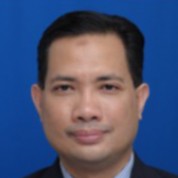Parallel Session 3.5
Policy Coherence: Effective Partnerships for Global Health
2 February 2018
13:00 - 15:00 hrs.
| Venue | : | WORLD BALLROOM B |
BACKGROUND :
The 2030 Agenda for Sustainable Development set ambitious health-related targets to “ensure healthy lives and promote well-being for all at all ages” and “strengthen the means of implementation and revitalise the Global Partnerships for Sustainable Development”. To this end, for example, the epidemics of AIDS, tuberculosis, malaria and neglected tropical diseases, as well as effectively addressing the threat of emerging infectious zoonotic diseases will require substantial policy coherence and investments. These are critical for the needed health innovations, as well as the development of systems-wide capacities within countries for the necessary measures of “prevention, detection and response”.
While many global efforts have focused on increasing research and development for new health innovations, it is also now clear that there must be a corresponding emphasis on strengthening systems and capacities to deliver the range of needed health services and products. The Ebola outbreak in West Africa was an important reminder of the importance of effective, and continuing, core government functions, within and beyond the health sector. As the global community contemplates responses to address epidemics and infectious diseases, the imperatives for ensuring an integrated approach are clear: effective partnerships are required between the public, private and the community sectors.
This signals a clear need for increased policy coherence, which demands coordination between a broad range of actors; not just between government agencies, private sector and community actors at the national and local levels, but also between those working at the global level, including on innovation, R&D, financing, governance and management. Addressing interconnected elements, and encouraging effective synergies of efforts of stakeholders in the public, private and community sectors, will be critical, not only in effectively addressing infectious and new emerging diseases, but also in helping low- and middle-income countries (LMICs) achieve universal health coverage (UHC) and other health-related targets.
OBJECTIVES :
In this context, the session aims to stimulate a dialogue between key stakeholders with the aim of identifying how public-private-community partnerships (PPCs) can address the needs of LMICs for effective “prevention, detection and response” to the threat of infectious diseases. The aim is to generate recommendations and proposals that can promote effective policy coherence and public-private-community partnerships at all levels. It is proposed that the discussions focus on three key, inter-related elements, as follows:
Policy coherence
- How can cross sectoral, multidisciplinary approaches at the national, regional and global levels be effected and prioritised?
- Which are key factors in facilitating policy, operational delivery environment and effectiveness for such approaches?
- What are relevant experiences and lessons learnt from existing projects and initiatives?
- What are the means to promote adoption of evidenced-based best practices and transferable lessons learned for policy coherence, including South-South approaches and strategies?
Effective partnerships
- What can we learn from existing PPC partnerships in terms of their contribution to the prevention, detection and response to infectious diseases?
- Are there experiences outside the health arena that are transferable?
- How can such partnerships be further strengthened?
- What are the right incentives for collaboration at different levels?
- What are the key considerations for ensuring the sustainability of PPC partnerships?
Evaluation and measuring success
- How can evaluation of PPC partnerships be undertaken?
- How do we measure success; e.g., what should be the matrix of success and effectiveness?
- Can there be evidence-based assessments of investments in innovation and R&D? And their eventual delivery in countries, including best practice, data and knowledge sharing?
Moderator

Nadia Rasheed
Team Leader, HIV, Health & Development, Asia-Pacific
United Nations Development Programme
Thailand
Speaker

Chalermsak Kittitrakul
Program Manager
AIDS Access Foundation
Thailand

Hayato Urabe
Director of Investment Strategy, Planning & Management
Global Health Innovative Technology Fund
Japan

Mandeep Dhaliwal
Director of HIV, Health and Development Team
United Nations Development Programme
United States of America
Panelist

Chutima Akaleephan
International Health Policy Program
Ministry of Publich Health
Thailand

Osman Dar
Project Director, One Health Project
Centre on Global Health Security, London
United Kingdom

Richard Kock
Professor of Wildlife Health and Emerging Diseases at the Royal Veterinary College
University of London
United Kingdom

Yodi Mahendradhata
Vice Dean for Research and Development
Faculty of Medicine, Universitas Gadjah Mada
Indonesia
Documents
Biosketch:
Short Paper:

